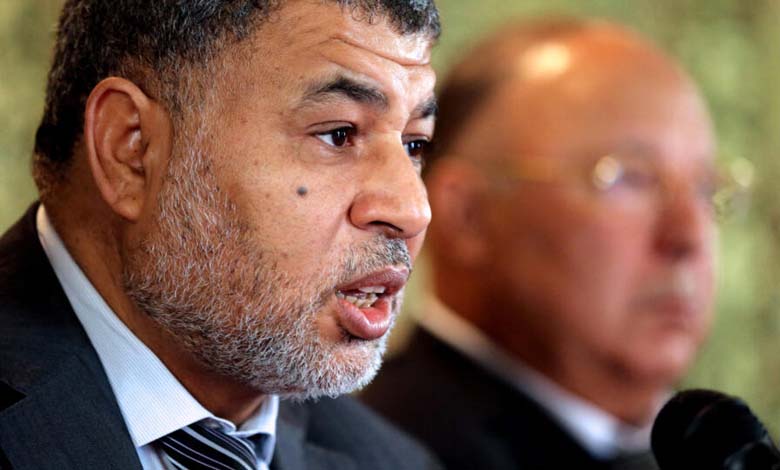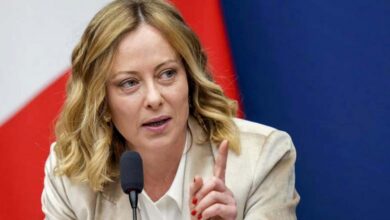The Group in Trouble… Who is the Islamist Ahmed Jaballah Expelled by France and Banned from Returning

France has expelled the Tunisian leader Brotherhood member Ahmed Jaballah, former president of the Union of Islamic Organizations in France, and banned him from returning to the country in a surprising move.
Radio “Europe 1” reported that Jaballah left France for Tunisia after receiving notification from the French Ministry of Interior that he posed a “serious threat to public order.” The decision came after an investigation by the public prosecutor’s office in Bobigny into “breach of trust” against the management of the European Institute for Human Sciences, led by Jaballah, which is considered a center for spreading the ideas of the Muslim Brotherhood in France.
Who is Ahmed Jaballah?
Ahmed Jaballah (68 years old) is a prominent figure in the Ennahdha Islamist movement in Tunisia, belonging to the generation of pioneers who grew up in the embrace of political Islam organizations in the 1970s.
Jaballah was among the Islamist youth who followed the path of “violence” in their youth, and among the supporters of Rashid al-Ghannouchi’s view, the leader of the Ennahdha movement, against Abdelfattah Mourou, the former president of the movement, in the ideological conflict that arose between them regarding the intellectual reference of the movement.
Jaballah migrated to France in 1981 to continue his studies at the Sorbonne University in Paris, utilizing his presence there to strengthen the influence of the Ennahdha movement, integrate into French society, and attract the Tunisian community.
Jaballah is known for his contradictory personal history; he is an imam, a theology professor, and an Islamic sciences teacher at the Sorbonne. He was also the former president of the Union of Islamic Organizations in France, which later turned into the Muslim Association of France, a branch of the Muslim Brotherhood in France. Jaballah is considered close to Ghannouchi and facilitates the Brotherhood’s link with Europe, especially France, by attracting the Tunisian community there.
What are France’s accusations against him?
France accuses Jaballah of posing a “serious threat to public order” and spreading the ideas of the Muslim Brotherhood, which France considers a “terrorist organization.” French authorities refer to an investigation conducted by the public prosecutor’s office in Bobigny regarding “breach of trust” against the management of the European Institute for Human Sciences, led by Jaballah. The institute, located in Saint-Denis in the northern suburbs of Paris, trains imams, teachers in Quranic schools, as well as ordinary citizens who want to learn Arabic or understand Islam.
France asserts that the institute represents a “factory of extremism” and disseminates Brotherhood ideas, supporting radical Islamic groups worldwide. France claims to have monitored Jaballah’s and the institute’s activities for years and possesses evidence and witnesses of their involvement in spreading Brotherhood ideology, affirming that it decided to expel Jaballah and prevent him from returning to the country based on a new law issued in December 2023, allowing the government to expel foreigners who pose a threat to national security or public order.
Jaballah Denounces the Decision
Jaballah denied the accusations against him, stating that he is a victim of defamation and misinformation, having not violated any French law. He respects republican and secular values, adding in a statement that he condemns the unjust and hasty decision and retains his right to appeal before the French judiciary.
Jaballah considers the decision part of the war on Islam, aiming to criminalize and suppress Islamic identity and expression. He calls for solidarity with him and with Muslims in France, urging to combat Islamophobia, racism, and discrimination.
On the other hand, the Ennahdha movement in Tunisia expressed solidarity with Jaballah, describing France’s decision as “authoritarian and contrary to human rights.” The movement stated in a statement that it condemns the repressive and arbitrary practices against the Muslim community in France, calling on the French government to respect freedom of belief, expression, and cultural diversity.
The movement affirmed its support for Jaballah in facing this injustice, expressing confidence in his ability to defend himself and his cause.












